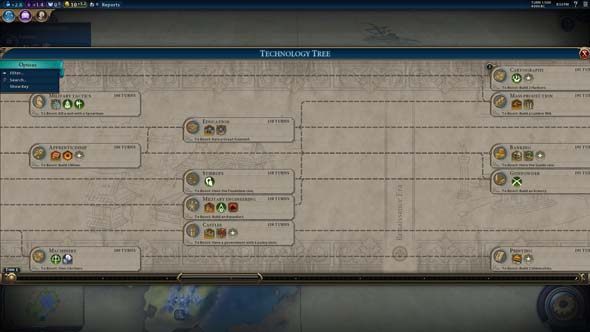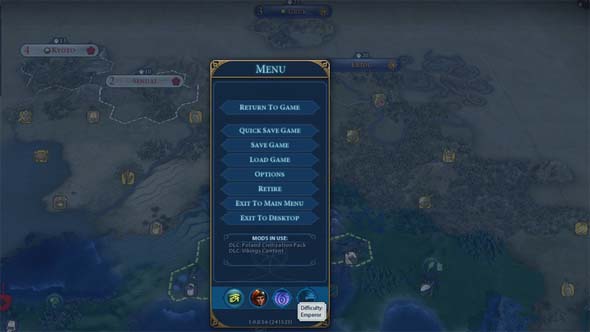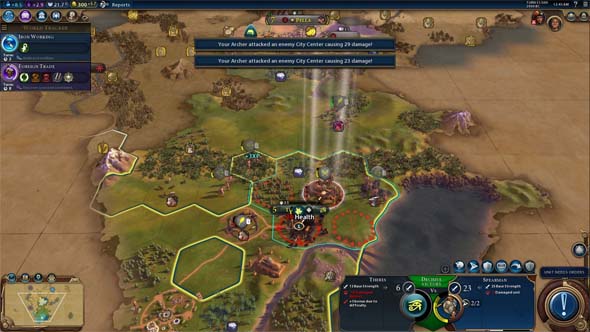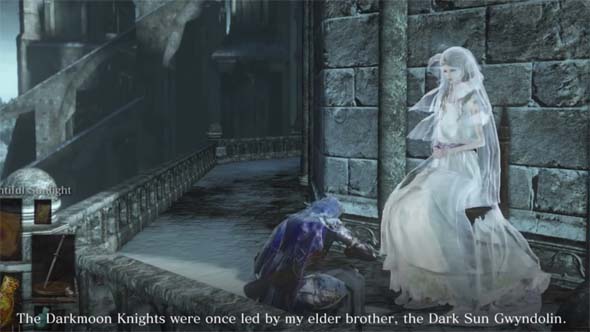I'm about to do something that has become a rather unpopular thing on the internet -- especially among liberal and progressive-minded people such as myself. I'm about to explain why I consider Rey to have been a "Mary Sue" in Star Wars: the Force Awakens.
I'm not doing this because I want to hate on the movies for the sake of hating them. I'm also not trying to hate on Daisy Ridley, and Daisy, if you read this, I want you to know that I think you did a fantastic job with the material that was given to you. I'm being critical because I want the movies to be better than they are. I have very high standards and expectations when it comes to Star Wars, and I feel that Disney's efforts so far have been sub-par. So much so that I often find myself using phrases like ... sigh ... "to the prequels' credit". I hate having to say that. It makes my skin crawl every time. I'm at a point, however, in which I find myself pointing out merits in the prequels as a point of contrast against flaws that I perceive in Disney's Star Wars films, as if one set isn't better or worse than the other; but rather, that they are just ... different.
I don't hate Rey. I am critical because I want these characters to be better.
So even though this is kind of old news that's been beaten to death for over two years, let's talk about Rey for a moment. And regardless of which side of this issue you fall on, I hope that you read the following with an open mind. And if you disagree, then that's fine. I'm not going to fight you over it.
"Mary Sue" is a subjective qualifier
Let's start with some background. The definition that I use for a Mary Sue is:
A fictional character (often appearing in fan fiction) who is primarily a vehicle for wish-fullfillment (usually being a self-insert stand-in for the author), and who is unjustifiably-competent in multiple fields -- if not everything.
Typically, these characters are good at everything they do. They get along with other established characters exceedingly well (sometimes even being romantically pursued by one or more of the canonical characters). They have few (if any) flaws. They are an idealized character who is essentially a "perfect" character within the fiction. They are also -- pretty much by definition -- characters who are added to a fictional setting long after its initial establishment.
The term "Mary Sue" is derived
from Star Trek fan fiction.
The term originated in Star Trek fan fiction, having been coined in 1973 after the publication of a parody story "A Trekkie's Tale" in the fan magazine Menagerie. This particular story (written by Paula Smith) was about a 15-year-old female character named Mary Sue, and it satirized the unrealistic nature of many characters in other fan fiction stories. Lieutenant Sue was the youngest Lieutenant in Starfleet and was an expert in virtually everything she did. She was "the best and the brightest" of Starfleet.
First off, I want to get one thing straight: whether or not a character is a "Mary Sue" is a subjective opinion. Whether or not any individual reader or viewer considers a given character as a "Mary Sue" is going to depend greatly upon where that individual draws the line between "justifiably-competent" and "unjustifiably-competent". That line will vary from person to person, and from fictional universe to fictional universe. I draw that line at a much different place for Star Wars than I do for Star Trek. In addition, this line is not always a hard or clear-cut line. It might be very fuzzy. The fuzziness of the line will also vary from person-to-person and from fictional-universe-to-fictional-universe. It's all on a continuum. Even within a single fictional universe, one character may be " more Mary Sue-ish" than another character.
Identifying a character as a Mary Sue also does not necessarily mean that the work of fiction (or even the character) is inherently bad. [More]
33b6a16d-ced8-4021-861e-c99f868a24d4|0|.0
Tags:Mary Sue, fan fiction, Star Wars, Star Wars: The Force Awakens, Star Wars: The Last Jedi, Disney, Rey, Daisy Ridley, Luke Skywalker, The Empire Strikes Back, Return of the Jedi, the Force, Jedi, Jedi Mind Trick, James Bond, Harry Potter, Sherlock Holmes, Neo, Superman, Doctor Who, James T. Kirk, Star Trek, Wesley Crusher, Gene Roddenberry, canon, women, sexism, gender, equality, gender equality
Netflix's extraordinary exclusive series Black Mirror recently released its fourth season, and it's premiere episode, "USS Callister", is already being praised around the internet for its spectacular deconstruction of toxic fandom and male-entitlement power fantasies. It deserves every bit of that praise. Jesse Plemons is also deservedly earning plenty of praise for his incredible performance as both a nerdy creeper and for his spot-on Shatner send-up. But Black Mirror, as a series, is so good, in part, because it works on many, many different levels. So I wanted to spend a bit of time praising the episode for some of its other concepts that are getting less attention in the mainstream.
Jesse Plemons puts on a masterful performance as a nerdy office creeper and a spot-on Shatner send-up.
Before I do that, I want to start by saying that I love Black Mirror as a series. It's a modern-day Twilight Zone with a specific focus on the social impacts of technology, and dire warnings about their dangers. Yes, it's pessimistic, but it's bloody brilliant! I haven't sat down to watch every episode yet, and have only seen a handful of episodes from the first three seasons and the season four premiere. That being said, the show's second episode "Fifteen Million Merits" is one of my favorite pieces of television ever. "The Entire History of You", "Be Right Back", and "San Junipero" are also some of my favorites so far.
These episodes (along with "USS Callister") work so well for me because they do such a fantastic job of world-building -- at least, when they are not unrealistically pretending that memories and personality can be replicated from DNA, which is a major (almost story-breaking) stumbling block for Callister. These deep, nuanced worlds create many levels of commentary to unpack. "Fifteen Million Merits" focused on reality TV and pervasive advertising, but it also has some scathing warnings about a culture of body-shaming, obsession over digital merits (read: XBox Live and Steam Achievements), and how corporate avarice could turn a post-scarcity economy into an absolute dystopia.
A friend of mine highly recommended "San Junipero" to me on the grounds that it's a more optimistic episode than many of the others -- even having a happy ending. But my takeaway was not a "happy ending" at all. The fairy tale ending hides a sinister metaphysical question that the text of the episode mostly sidesteps: the mind-body problem. Is the avatar of a deceased person living in San Junipero really that same person? Or merely a copy? Are they one power failure away from being snuffed out of existence? Are people committing suicide based on misinformation from a multi-billion dollar corporation promising that they can live forever in a simulated reality?
Black Mirror's exceptionally well-thought-out worlds always leave sinister nuances to unpack.
"USS Callister", on the surface, appears to be entirely about toxic fandom (along with male entitlement). It is absolutely about that, and it does a fantastic job of presenting it. As a Star Trek fan, I also enjoyed the deconstructive elements about Trek tropes and the unrealistic reverence that fans hold for the series and its established canon. As someone who blogs about Star Trek, Star Wars, video games, and other fanboy topics, I am certainly a target of at least some of this episode's criticism.
As someone who works in the software industry, I recognized the episode also taking swipes at the cult of personality attached to tech moguls like Mark Zuckerberg, Jeff Bezos, Elon Musk, Bill Gates, Steve Jobs, Gabe Newell, and others, and the idea that they may be taking credit and profiting on other people's work, and becoming filthy stinking rich at the expense of the consumers who mindlessly use and venerate their products, all with willful disregard for how those products may be misused. As someone who can't wait to put myself on the waiting list for a Tesla self-driving car, I'm also well within the cross-hairs of that line of commentary... [More]
75a819a5-da6e-4b26-8c2f-fe641b289a76|0|.0
Tags:Black Mirror, Netflix, streaming television, Jesse Plemons, science fiction, anthology, USS Callister, Star Trek, the Twilight Zone, Westworld, technology, artificial intelligence, video game, mind-body problem, ethics, toxic fandom, toxic masculinity, male entitlement, cult of personality, sexism, gender

In my last post, I ranted a little bit about some of the major frustrations that I have with the way that Civilization games have historically dealt with difficulty levels. In summary, I identified three problems that I feel make it less enjoyable to play the game on higher difficulties, even if the lower difficulties still feel too easy. The three problems are:
In this post, I'd like to provide some more constructive criticism by discussing some of the thoughts and ideas that I've had for possibly resolving these three problems. These ideas include providing a wider range of options for customizing the difficulty level and game experience to suit the individual player's tastes and style, and to provide a wider (and more open-ended) set of game-long challenges.
Alternative solutions to game difficulty
So what could the developers do about these problems?
Well, the problem of game pacing could possibly be solved by inverting the handicap such that instead of speeding up the A.I.s' progress through the game, the player is slowed down. This could be accomplished by slowing down the human player's tech and civic progress, and by negatively handicapping some of the human player's yields. This would allow the A.I.s to progress at a more historically-appropriate rate, and overall game length would remain similar across all difficulties.

Padding out sparse areas of the tech and civics trees could mitigate the ability to beeline to later eras.
Rapid era progression could also be somewhat mitigated by padding out the tech and civics trees a little bit more. Beelining to the Renaissance via the "Cartography" technology is common for civs like England and Norway. There's a few ways to limit this. One simple way would be to simply make "Cartography" require either "Education" or "Military Tactics". Another way would be to have a technology between "Ship Building" and "Cartography" -- such as an "Optics" technology that unlocks an upgrade to the Scout, or a "Lateen Sail" technology that unlocks a medieval naval unit like the Cog, Hulk, Junk, or Galleass (or move the Caravel up to "Lateen Sails" but don't give it ocean-crossing abilities until "Cartography").
Customization, options, and difficulty settings
As for resolving the other issues presented by high difficulty levels, my preference would be for the developers to add more customization and tuning options for players so that we can tailor the gameplay experience and challenges more to our liking.

Civ VI has limited customization options.
Having independent sliders or settings for things like Player Handicaps, A.I. Handicaps, AI Temperament, Barbarian Spawn Rate, Barbarian Aggressiveness, Barbarian Tech Level, City State Aggressiveness, and so on would all go a long way towards allowing the player to customize the game's challenge according to their own strengths and weaknesses. Handicap settings for players and A.I. can even be further divided into different sub-categories along the lines of: Tech Handicap, Culture Handicap, Production Handicap, Gold Handicap, Growth Handicap, Happiness / Amenity Handicap, etc.. So if you find that you are consistently out-teching your A.I. opponents, but you feel you have parity with the A.I. in other areas of the game, then you could specifically buff the A.I.'s tech handicap, weaken yours, or both.
This would certainly make some of the game's code more complicated, but I don't think that it would be prohibitively difficult. The difficulty settings already make adjustments to these very same parameters, and I believe the game's own .ini files allow modders to customize many (if not all) of these attributes. I don't see any reason why such settings can't just be in the game's settings menu, and the difficulty settings (deity, emperor, king, settler, etc.) could just use some pre-configured arrangements of those values.
Other genres use similar paradigms for their difficulty settings. Sports games are a prime example... [More]
b6248b6f-1a24-40b9-86ea-99aa3b364e61|4|5.0
Tags:Sid Meier's Civilization, Civilization V, Civilization VI, Firaxis, strategy, grand strategy, difficulty, artificial intelligence, climate, politics, demographics, quest, Civilization: Beyond Earth, Madden NFL, NBA 2k16

Obviously, I love the Sid Meier's Civilization game franchise. I've been playing it since Civ III, and even own the Fantasy Flight board game (which I also really like). This game series has kept me up, one-more-turning, into the wee hours of the morning on many occasions. Despite my love for the games, this series can also really grind my gears sometimes.
One of my persistent frustrations with the Civilization series of games is the way that it handles difficulty levels. Granted, this seems to be a common issue in all strategy games, so Civ is certainly not unique in this frustration. Basically, the higher difficulties don't make the A.I.s play better; rather, it just gives them free stuff at the beginning of the game, and buffs their production, research, and so on. The free stuff includes (depending on the difficulty level selected): extra settlers, extra military units, free workers/builders, free technologies, extra gold, extra population in its starting city, and so forth.
There's three key problems with this design paradigm:
- It front-loads the challenge in a game that is supposed to have very long play-sessions
- It limits player options
- It rushes the pace of the game
The front-loading of frustration
Giving the A.I.s extra stuff at the beginning of the game only makes the game harder by giving the A.I.s a handicap - a head start. It doesn't make the A.I.s better - or the game harder - in the long run. The A.I.s still chose crappy locations for those extra settlers to plant their cities - often putting them in un-productive locations, or (in the case of Civ VI) putting them so close together that they can't fit enough districts in. The A.I. doesn't plan ahead regarding where its districts will be, and it often places those districts in sub-optimal locations. "Sub-optimal" being an understatement.

The A.I. starting with extra settlers on high difficulties doesn't make the game harder in the long run.
Those free extra units aren't used more effectively either. Even with a few extra warriors, the A.I. still can't plan or execute a city siege, as it's generally inept at handling the one-unit-per-tile, hex-based combat, and they rarely bother to escort their civilian units. The developers can't be completely blamed for this, as A.I. for tactical combat is a very difficult problem to solve. Most games that have A.I.-driven tactical combat either don't have any grand strategy at all (as in Panzer General), or the grand strategy is separated into a completely different layer of gameplay (as in Total War).
Once the human player can get his or her cities up and running, get a sizable military built, and start conquering the A.I., all these free starting units become moot. These extra units can even backfire. A.I. cities can usually easily be captured by the human player. Since the A.I. gets buffs towards population growth, production, and other yields, those cities tend to grow faster than the player's cities anyway. So if they're conquered, then the human player gets better cities than they could have founded on their own, and gets them sooner than if they had spent the time to build their own settlers.

It's not hard to capture A.I. cities, which are often larger and more developed
than any city the player could have founded within the same amount of time.
These early hurdles aren't that difficult to overcome, and once the A.I.'s starting advantages have been neutralized, they don't pose much of an increased threat long-term... [More]
a8515e12-0c08-4e01-a801-df49acf76d91|5|5.0
Tags:Sid Meier's Civilization, Civilization V, Civilization VI, Firaxis, strategy, grand strategy, difficulty, tactics, artificial intelligence, hex, handicap, wonder, eras, technology

Before we get very far into this, I want to acknowledge a point that you might be thinking right now: "But MegaBearsFan, Yorshka tells us who her parents are!" Or at least, she tells us that her father is Gwyn and her sister is Gwynevere and her "brother" is Gwyndolin. Seems pretty cut-and-dry right? OK, blog post over. If I keep writing on topics like this, I'm going to become very prolific!
... Well, maybe it's not quite that simple. This all seems rather fishy, and I'm not so sure if I'm willing to take Yorshka's words at face value. We still have the Ringed City DLC coming out for Dark Souls III at the end of this month, so it's entirely possible that DLC will settle the questions raised in this post. But until then, please humor me as I take a dive down a bit of a rabbit hole.

Yorshka directly states that Dark Sun Gwyndolin is her brother.
Before we go any further, let's take a look at what Yorshka actually says - her full dialogue can be conveniently read on fextralife (among other Souls wikis). When you meet Yorshka and perform the Darkmoon loyalty, she mentions:
"If thou shalt swear by the Covenant, to become a shadow of Father Gwyn and Sister Gwynevere,
A blade that shall hunt the foes of our lords;
Then I place thee under the aegis, and the power, of the Darkmoon."
If you level up in the covenant, she'll go on to talk about her relation to Dark Sun Gwyndolin:
"The Darkmoon Knights were once led by my elder brother, the Dark Sun Gwyndolin.
But he was stricken by illness, and leadership of the knights fell to me.
Then Sulyvahn wrongfully proclaimed himself Pontiff, and took me prisoner.
Oh where could my dear brother be?"
If you take this all at face value, then it seems pretty cut-and-dry, but take another look at the actual subtitle text. When she talks about Gwyn and Gwynevere, she uses the words "Father" and "Sister" (respectively), implying that Yorshka may be the daughter of Gwyn and blood sister to both Gwynevere and Gwyndolin. However, notice that, unlike when speaking of her brother, the words "Father" and "Sister" are capitalized, as if they are proper nouns or - more likely - titles... [More]
79ecc47f-30da-4747-ac2f-b4ec639b22b0|2|5.0
Tags:Dark Souls, Dark Souls III, From Software, lore, Yorshka, Blades of the Darkmoon, Darkmoon, Gwyndolin, Gwyn, Gwynevere, Anor Londo, Irithyll, Faraam, Nameless King, God of War, dragon, crossbreed, Priscilla, Velka, Caitha, Fina, Seath the Scaleless, Dusk, Oolacile, Oceiros, The Painted World of Ariamis, religion
|

| 12 | | | | | | | 60 | | 11 | | | | | | | 55 | | 10 | | | | | | | 50 | | 09 | | | | | | | 45 | | 08 | | | | | | | 40 | | 07 | | | | | | | 35 | | 06 | | | | | | | 30 | | 05 | | | | | | | 25 | | 04 | | | | | | | 20 | | 03 | | | | | | | 15 | | 02 | | | | | | | 10 | | 01 | | | | | | | 05 |
|